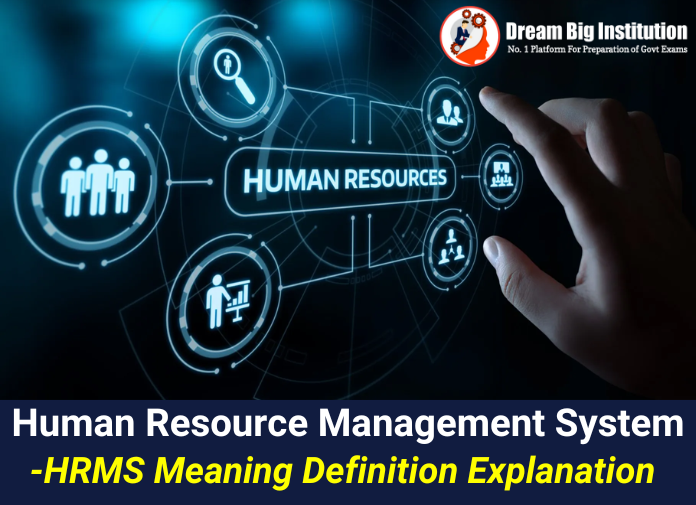Table of Contents
Human Resource Management System
HRMS serves as a centralized repository for storing and managing employee data, including personal information, employment history, performance records, benefits, payroll details, training and development, and other relevant information. It streamlines and automates HR processes, allowing HR professionals to efficiently manage and maintain employee records, track their performance, and administer various HR programs.
History of HRMS 9 (Human Resource Management System)
The history of HRMS (Human Resource Management System) goes back to the 1970s when companies started using computers to manage their employees. Initially, they focused on automating payroll processes, such as calculating earnings, deductions, and printing paper checks. These tasks required mainframe technology. It wasn’t until the early 2000s that payroll became fully electronic with the widespread adoption of direct deposit and employee self-service.
In the late 1980s, PeopleSoft introduced one of the first comprehensive HRMS systems. Besides payroll, it offered features like managing employee records, recruiting, tracking time and attendance, administering benefits, handling compensation, generating compliance reports, and more. These functionalities helped HR professionals automate various aspects of the employee lifecycle and make better decisions about their workforce.
The late 1990s saw the emergence of the Internet, which brought further automation to HR processes. For instance, traditional paper-based job advertisements were replaced by electronic job boards, enabling recruiters and candidates to connect in new ways. By the 2010s, cloud technology became widely adopted, allowing HR teams of all company sizes to access a suite of applications without the need for expensive computer hardware or dedicated IT staff to manage the system.
Why HRMS is important
Currently, due to the shift towards remote work, companies are experiencing changes in their HR expenses, particularly in office space. However, it is still crucial for companies to accurately calculate labor costs in order to keep track of their revenue per employee performance indicator.
According to Joseph Hadzima, a senior lecturer at the MIT Sloane School of Management, the total cost of a worker, including base pay, employment taxes, and benefits, typically amounts to 1.25 to 1.4 times their annual salary. For example, a worker earning $50,000 per year may actually cost the company between $62,500 and $70,000, excluding expenses like office space and equipment such as computers and phones.
Additionally, companies with overburdened HR departments should implement self-service capabilities. There is no need for an HR specialist to spend time assisting a manager with routine tasks like updating work hours or helping employees access forms like W-2s. These tasks can be efficiently handled through self-service features.
Fortunately, a modern HR management system offers various benefits, including accurate financial data reporting and secure self-service functionality.
Functions of an HRMS
An HRMS (Human Resource Management System) serves several important functions within an organization. Here are some key functions of an HRMS:
- Employee Data Management: An HRMS helps manage and maintain employee data, including personal information, employment history, contact details, and performance records. It serves as a centralized database for all employee-related information.
- Payroll and Benefits Administration: HRMS systems often include payroll and benefits modules. They streamline the process of calculating and managing employee compensation, including wages, salaries, deductions, and benefits such as healthcare, retirement plans, and leave management.
- Recruitment and Onboarding: HRMS systems facilitate the recruitment and onboarding process by automating tasks such as job posting, candidate screening, interview scheduling, background checks, and generating employment contracts. They help HR teams manage the entire hiring process efficiently.
- Time and Attendance Tracking: HRMS systems often include time and attendance modules to track employee work hours, leave requests, and absences. This helps in accurate attendance management, tracking of overtime, and generating attendance reports.
- Performance Management: HRMS systems may provide features for managing employee performance evaluations, goal setting, and tracking performance metrics. They enable organizations to establish performance standards, conduct performance reviews, and identify training and development needs.
- Training and Development: HRMS systems often have training management modules that facilitate the planning, scheduling, and tracking of employee training programs. They help in managing training resources, tracking employee participation, and assessing training effectiveness.
- Employee Self-Service: Many HRMS systems offer self-service portals, enabling employees to access and update their personal information, view payslips, request leave, and access HR-related documents and policies. This empowers employees and reduces the administrative burden on HR personnel.
- Compliance and Reporting: HRMS systems assist in ensuring compliance with labor laws, regulations, and company policies. They generate reports on various HR metrics, such as headcount, turnover, diversity, and training, which aid in decision-making and meeting legal requirements.
Overall, an HRMS streamlines HR processes, improves efficiency, enhances data accuracy, and provides valuable insights to support strategic HR decision-making within an organization.
The objective of a Human Resource Management System (HRMS)
The primary objective of an HRMS (Human Resource Management System) is to streamline and automate various HR processes within an organization. Here are the key objectives of an HRMS:
Centralize Employee Data: The HRMS aims to centralize all employee-related data, including personal information, employment history, performance records, training records, and more. By consolidating this information into a single system, it becomes easily accessible and manageable for HR professionals.
Efficient Workforce Management: An HRMS helps optimize workforce management by automating processes such as recruitment, onboarding, time and attendance tracking, leave management, and performance management. This reduces manual effort, improves accuracy, and enhances overall efficiency.
Streamline Payroll and Benefits Administration: HRMS systems assist in managing payroll processes, calculating employee compensation, deductions, and benefits accurately. By automating payroll and benefits administration, organizations can reduce errors, ensure compliance, and improve the efficiency of these critical tasks.
Enhance Employee Self-Service: One of the objectives of an HRMS is to provide self-service capabilities for employees. Through a self-service portal, employees can access and update their personal information, view their payslips, request leave, and access HR policies and documents. This empowers employees, reduces HR administrative tasks, and improves employee satisfaction.
Facilitate Compliance and Reporting: HRMS systems help organizations ensure compliance with labor laws, regulations, and internal policies. They generate reports on various HR metrics and provide data insights that support decision-making, workforce planning, and meeting legal requirements.
Improve Data Accuracy and Security: With an HRMS, data accuracy and security are prioritized. Employee data is stored securely, ensuring privacy and confidentiality. HRMS systems also facilitate data validation and minimize errors by automating data entry processes.
Support Strategic HR Decision-making: By providing comprehensive HR data and analytics, an HRMS enables HR professionals and management to make informed decisions. The system generates reports on key HR metrics, such as turnover rates, employee performance, and training needs, which help in identifying trends and formulating effective HR strategies.
Benefits of Human Resource Management System
Streamlined HR Processes: An HRMS automates various HR processes, such as recruitment, onboarding, attendance tracking, leave management, performance evaluations, and benefits administration. This streamlines workflows reduces manual effort, and increases overall efficiency.
Improved Data Management: HRMS systems provide a centralized database for employee information, ensuring data accuracy and eliminating redundant data entry. It simplifies data retrieval, updates, and reporting, resulting in better data management and reduced administrative errors.
Enhanced Employee Self-Service: HRMS platforms often include self-service portals, empowering employees to access and update their personal information, request time off, view pay stubs, and access company policies. This reduces HR’s administrative workload and improves employee satisfaction by providing self-service convenience.
Accurate Payroll Processing: HRMS systems automate payroll calculations, tax deductions, and benefits administration. This reduces errors and ensures accurate and timely salary payments. It also simplifies compliance with tax regulations and labor laws, minimizing payroll-related legal risks.
Compliance and Reporting: HRMS solutions facilitate compliance with various labor laws, regulations, and industry standards. They generate reports on HR metrics, such as headcount, turnover rates, training needs, and diversity, aiding in decision-making, auditing, and regulatory compliance.
Data Analytics and Insights: HRMS systems provide data analytics tools that enable HR professionals to gain insights into workforce trends, performance patterns, and employee engagement. This data-driven approach supports strategic decision-making, talent management, and succession planning.
Cost Savings: Implementing an HRMS can result in cost savings for organizations. It reduces manual paperwork, administrative tasks, and dependency on physical storage. It also optimizes workforce management, enabling HR teams to operate efficiently with reduced staff.
Enhanced Security and Data Privacy: HRMS platforms prioritize data security and privacy. They offer robust access controls, encryption, and backup mechanisms to protect sensitive employee information. This ensures compliance with data protection regulations and safeguards against data breaches.
Scalability and Flexibility: HRMS systems can accommodate organizational growth and changes. They offer scalability, allowing organizations to expand their HR operations without significant system upgrades. Cloud-based HRMS solutions also provide flexibility and accessibility from anywhere, facilitating remote work and global workforce management.
FAQ on HRMS
Q1: What is an HRMS?
A: An HRMS (Human Resource Management System) is a software platform that helps organizations manage and automate various HR processes, such as employee data management, payroll, recruitment, performance management, and more.
Q2: What are the key features of an HRMS?
A: The features of an HRMS can vary, but common features include employee data management, payroll processing, benefits administration, time and attendance tracking, recruitment management, performance evaluations, employee self-service portals, reporting and analytics, and compliance management.
Q3: How can an HRMS benefit my organization?
A: An HRMS offers several benefits, including streamlined HR processes, improved data management, enhanced employee self-service, accurate payroll processing, compliance with regulations, data analytics for decision-making, cost savings, enhanced security, and scalability.
Q4: Is an HRMS suitable for small businesses?
A: Yes, HRMS solutions are available for businesses of all sizes. There are HRMS platforms designed specifically for small and medium-sized businesses (SMBs) that offer essential HR functionalities at an affordable cost.
Q5: Can an HRMS integrate with other systems?
A: Yes, many HRMS platforms offer integration capabilities with other systems such as accounting software, time and attendance systems, applicant tracking systems, and more. This allows seamless data exchange and eliminates the need for manual data entry.













